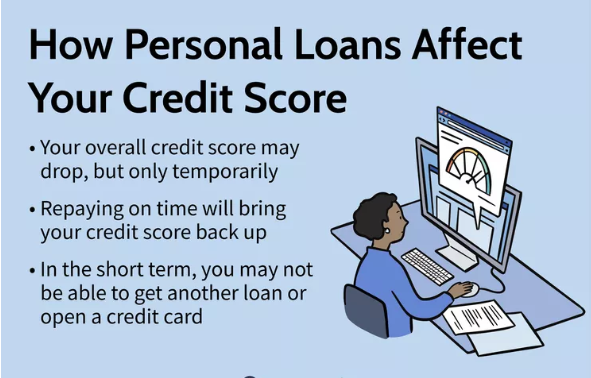How Mortgages, Auto Loans, and Student Loans Affect Your Credit
Loans are a part of life for many people. Whether it’s buying a home, getting a car, or paying for education, borrowing money often makes these major milestones possible. But did you know that the way you handle these loans can have a big impact on your credit score?
Let’s break down how mortgages, auto loans, and student loans each affect your credit both positively and negatively.
Mortgages and Your Credit
A mortgage is one of the biggest loans you’ll ever take out, and it can affect your credit in powerful ways.
How it helps your credit:
-
Credit mix: A mortgage adds installment debt to your profile, which helps diversify your credit mix (10% of your FICO score).
-
Payment history: Making on-time mortgage payments consistently builds a strong credit history.
-
Long credit history: Mortgages usually last 15–30 years, adding length and stability to your credit file.
How it can hurt your credit:
-
A late mortgage payment can drop your score significantly.
-
Foreclosure or short sales can stay on your report for 7 years, severely impacting your score.
-
Applying for a mortgage triggers a hard inquiry, which can cause a small temporary dip.
Auto Loans and Your Credit
Auto loans are another common type of installment loan that can influence your credit.
How it helps your credit:
-
Credit diversity: Like mortgages, auto loans add to your credit mix.
-
Building history: Paying on time every month builds positive payment history.
How it can hurt your credit:
-
Missed payments can cause a large score drop.
-
A repossession (if you default) can stay on your report for 7 years.
-
Opening an auto loan increases your debt, which may temporarily lower your score.
Student Loans and Your Credit
Student loans are unique because they often span a decade or more, making them a long-term part of your credit profile.
How they help your credit:
-
Credit length: Student loans can boost your credit history length since they often stay open for many years.
-
On-time payments: Consistent repayment can strengthen your score.
-
Multiple accounts: Federal loans often get split into multiple tradelines, which can diversify your profile.
How they can hurt your credit:
-
Missed or late payments are reported after 30 days and can drop your score quickly.
-
Defaulting on student loans can have serious long-term consequences.
-
High balances may look risky to lenders, even if you’re paying on time.
Key Takeaways
-
Payment history is king. Across all loan types, paying on time is the single best way to protect and improve your credit.
-
Loans diversify your credit mix. Having a combination of revolving credit (like credit cards) and installment loans (like mortgages, cars, or student loans) helps your score.
-
Debt size matters less than how you manage it. Even large loans can improve your credit if you make payments consistently.
Final Thoughts
Mortgages, auto loans, and student loans can feel like heavy financial obligations—but when managed well, they can actually work in your favor by strengthening your credit profile. The key is simple: borrow responsibly, make payments on time, and keep your overall debt under control


